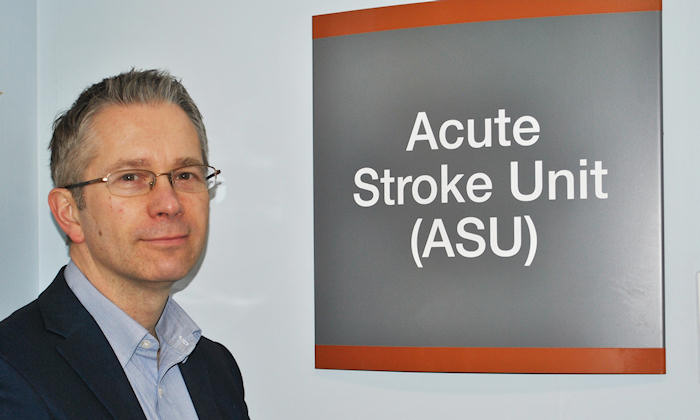Immune discovery points to therapies to improve stroke recovery
08 May 2017
A new study has found that having a stroke damages immune cells as well as affecting the brain.

Researchers have published findings of a new study which helps explain why patients have a greater risk of catching life-threatening infections, such as pneumonia, after having a stroke.
The team from the University of Edinburgh, Salford Royal and The University of Manchester say therapies that boost survival of the affected immune cells or compensate for their damage could help improve the recovery of stroke patients.
During the study, they found that mice that experienced a stroke had fewer numbers of specialised immune cells called marginal zone B cells, which produce antibodies.
Loss of the B cells was caused by a chemical called noradrenaline produced by nerves activated during stroke. Affected mice were more susceptible to bacterial lung infections, but could be protected from infection if the effects of noradrenaline were blocked.
However, blocking noradrenaline would probably be too dangerous in stroke patients, the researchers warn. They say development of other therapies that block or bypass the damage to the immune system could offer new approaches to help cut the risk of infection after stroke.
The study was led by Dr Barry McColl and Dr Laura McCulloch from The Roslin Institute at the University of Edinburgh, in collaboration with Professor Craig Smith, on behalf of the stroke research group at Salford Royal.
Professor Smith, who is an Honorary Clinical Chair in the Faculty of Biology, Medicine and Health’s Division of Cardiovascular Sciences, said: “Infections are a major complication of stroke and lead to a worse outcome for patients. This is an important study which provides new insights about how stroke affects the immune system, which we hope will lead to new approaches to preventing infections after stroke.”
The study 'Adrenergic-mediated loss of splenic marginal zone B cells contributes to infection susceptibility after stroke' is published in Nature Communications and could also lead to new tests to identify which stroke patients have the highest chances of developing an infection, so they can be monitored more closely.
Read the original article in full on the Salford R and D website.
